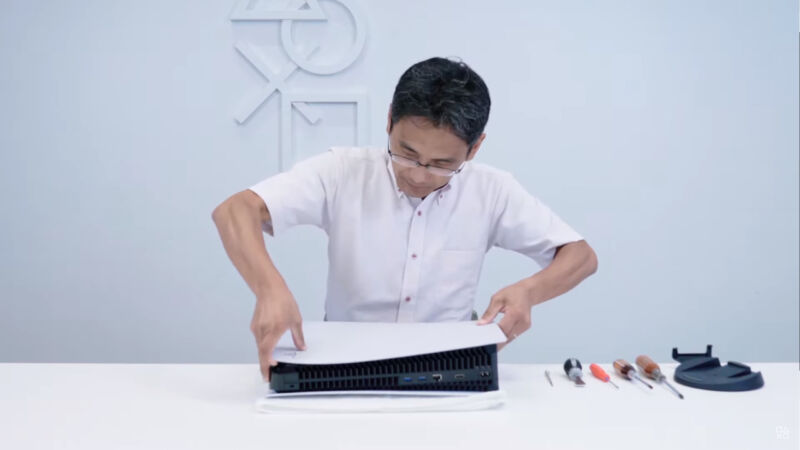Low semiconductor supplies may not be the main reason for PS5 shortages

Enlarge (credit: Sony / Youtube)
In an earnings call last night, Sony CFO Hiroki Totoki said that despite worldwide semiconductor shortages, the company has "secured a number of chips that's necessary to achieve" the company's current production target of at least 14.8 million PlayStation 5 consoles in the current fiscal year (which ends in March 2022). "Regarding the supply of the semiconductors, we're not concerned," he said during a Q&A portion of the event.
That statement implies that Sony plans to make and ship at least 12.5 million PS5 units on top of the 10.1 million it shipped through the end of June (10 million of which had sold through to consumers by July 18). That production rate would only be about 4 percent faster than the roughly 44,000 units per day Sony shipped on average in the system's first 7.5 months on the market. That's despite a February statement from Sony Interactive Entertainment President Jim Ryan suggesting that supply chain improvements would mean "by the time we get to the second half of [2021], you're going to be seeing really decent [PS5 production] numbers indeed."
Are shortages here to stay?The modest increase in PS5 production in the coming months likely won't be enough to put a dent in widespread PS5 shortages, which are causing units of the system to sell out almost immediately when they hit retail shelves. But Totoki's new statement suggests those shortages are driven more by intense demand than by Sony's inability to secure the chips it feels it needs in the near term (and while scalpers certainly aren't helping that situation, healthy demand from consumers seems to be driving the market in total).
Read 6 remaining paragraphs | Comments